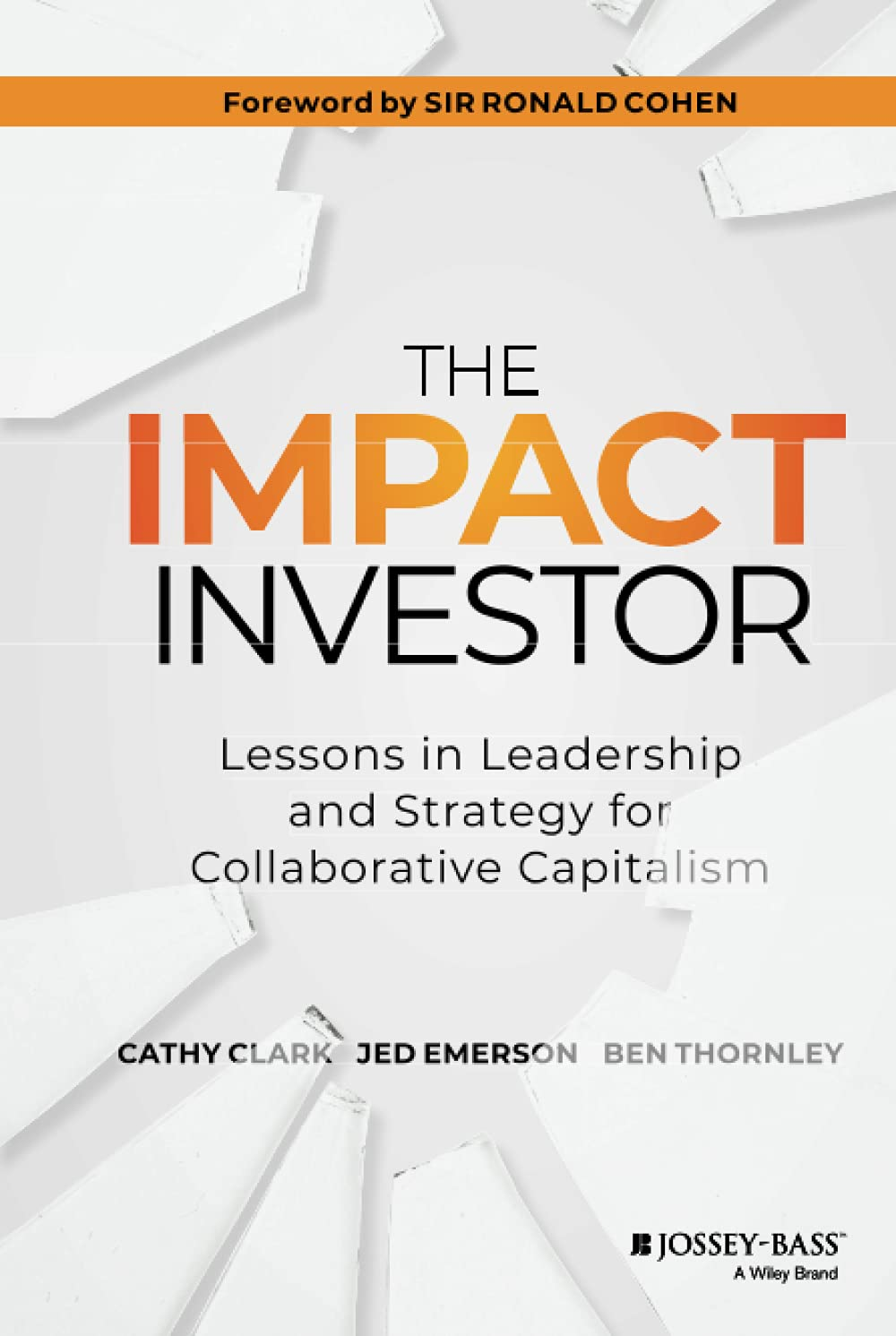

Guide to Ethical Investing: Making Money While Making a Difference
Summary
Ethical investing allows women to align their financial goals with their personal values, promoting sustainability and social justice while potentially enhancing portfolio resilience and returns.
Reflection Questions
- How do your personal values align with your current investment choices?
- What are the most important social or environmental issues you would like your investments to impact positively?
- How might changing your investment strategy to include ethical considerations affect your financial goals and personal fulfillment?
Journal Prompt
Reflect on your journey with personal finance and investing. Consider how integrating ethical investing into your portfolio could transform not only your financial returns but also contribute to the causes you are passionate about. What steps can you take to begin this transition, and what outcomes would you hope to see both financially and socially?
As women continue to reshape the financial landscape, ethical investing can help us not only grow wealth but also drive meaningful change. By integrating ethical considerations into investment decisions, women can align their financial goals with their values, supporting initiatives that promote environmental sustainability, social justice, and corporate governance. This approach not only amplifies the impact of their investments but also taps into a growing trend that has shown to offer competitive returns and resilience in the face of global challenges. Ethical investing empowers women to be leaders in fostering a sustainable future, ensuring their portfolios reflect both their financial acumen and their commitment to making a positive impact on the world. Read on to learn more!
What is Ethical Investing?


Ethical investing is a strategy where individuals choose their investments based on personal values and the potential impact of the investment on the world. Creating an ethical investment portfolio prioritizes not only financial returns but also the social and environmental consequences of investments. Ethical investors actively seek out companies that contribute positively to the world, avoiding those that cause harm or operate against their ethical standards. This might involve excluding sectors like tobacco, firearms, or fossil fuels, or focusing on companies that have strong policies on pollution reduction, renewable energy, and human rights.
Ethical investing also emphasizes transparency and accountability, requiring investors to be well-informed about where their money is going and what practices it is supporting. This form of investing challenges the traditional notion that financial gain is the sole consideration in making investment decisions. By aligning personal values with investment choices, ethical investors aim to achieve a financial return while also fostering positive social and environmental change.
Key Concepts of This Type of Investment Strategy
Socially Responsible Investing (SRI)
Socially Responsible Investing (SRI) involves selecting investments based on ethical, social, and environmental criteria. Making socially responsible investments typically excludes companies and industries that produce negative societal impacts, such as gambling, tobacco, and high-pollution sectors.
SRI investors also look for firms taking corporate social responsibility and ethical business practices seriously. They seek companies engaged in positive actions like promoting diversity, community involvement, and sustainable practices. The key aspect of SRI is not only to avoid harm but also to promote good through certain investments, making it a proactive approach to ethical investing.
Environmental, Social, and Governance (ESG Investing) Criteria


Environmental, Social, and Governance (ESG) criteria provide a set of standards for a company’s operations that socially conscious investors use to screen potential investments. Environmental criteria consider how a company safeguards the environment, including corporate policies addressing climate change issues and prioritizing sustainable energy.
Social criteria examine how it manages relationships with employees, suppliers, customers, and the communities where it operates. Governance deals with a company’s leadership, executive pay, audits, internal controls, and shareholder rights. Investors who use ESG criteria believe that these factors can significantly affect the performance of a company and, consequently, the returns on their investments.
Impact Investing
Impact investing or sustainable investing is targeted investments aimed at generating specific beneficial social or environmental effects in addition to financial gains. This approach directly helps address certain social or environmental challenges that include but are not limited to, renewable energy, sustainable agriculture, healthcare, and education. Unlike other forms of ethical investing, impact investing looks for opportunities to help create positive change directly, measuring the success of investments not just by financial return but also by their positive impact on society or the environment.
The Importance of Responsible Investment in Today’s Economic Climate


In today’s economic climate, ethical investing has gained prominence as investors become more aware of global social and environmental issues. With increasing concerns about climate change, corporate governance, and social inequality, there is growing interest in investments that can provide solutions. Ethical investing also responds to a broader demographic shift where millennials and Gen Z, who are particularly values-driven, are becoming significant investors. They demand more than just financial returns and are influencing how investment funds are allocated, pushing for transparency and accountability in corporate behavior.
Moreover, the COVID-19 pandemic highlighted the importance of resilience and ethical practices in business operations. Companies with robust ESG criteria have often experienced less volatility and demonstrated better risk management. This resilience appeals to investors who are increasingly concerned about long-term returns and sustainability in a rapidly changing world. As such, ethical investing not only aligns with personal values but is becoming essential for risk management and capital growth in the modern financial landscape.
Exploring the Benefits of Ethical Investing
Financial Benefits
Ethical investing can offer significant financial benefits, challenging the misconception that ethical choices might compromise financial returns. Studies and market performance trends increasingly show that companies adhering to high ethical standards often achieve strong financial performance. This can be attributed to various factors, including sustainable business practices that lead to long-term cost efficiencies, higher consumer and investor trust, and alignment with global shifts towards sustainability.
Moreover, as regulatory environments evolve to impose stricter guidelines on corporate behavior, companies well-aligned with ethical practices are better positioned to navigate these changes without facing heavy penalties or reputational damage, thereby securing their financial stability.
Social and Environmental Impact


The social and environmental impact of ethical investing extends beyond the financial benefits, enabling investors to effect real-world change. By directing capital towards companies that prioritize sustainable and responsible business practices, investors can promote environmental stewardship, enhance social welfare, and support community development.
This includes investing in renewable energy, supporting companies with fair labor practices, or funding businesses that contribute to educational and social equality. Through such investments, individuals and institutions can play a crucial role in driving societal progress and environmental conservation, creating a positive impact that aligns with their values.
Risk Management
Ethical investing also serves as an effective risk management strategy. By focusing on companies with strong governance and sustainable practices, investors can mitigate the risks associated with regulatory penalties, reputational damage, and volatile market shifts driven by socio-political changes.
Companies that neglect environmental, social, or governance issues often face greater scrutiny and can incur significant financial losses due to legal challenges, consumer boycotts, or inefficient operations. Conversely, companies that proactively manage these risks are generally more resilient and capable of sustaining their operations through various market conditions, thereby offering more stable investment opportunities.
Challenges and Considerations for New Investors


One of the common challenges in ethical investing is the difficulty in defining and measuring what qualifies as an ethical investment due to varying personal and cultural values. This often leads to inconsistencies in investment strategies and criteria, making it hard for investors to find options that fully align with their ethical standards.
Additionally, the limited availability of transparent and detailed information about company practices can make it challenging to evaluate potential investments accurately. There’s also the perception of potentially sacrificing financial returns, although this has been increasingly disproven by the performance of ethical funds.
Greenwashing and How to Avoid It
Greenwashing, where companies misrepresent their products or practices as environmentally friendly to appeal to ethical consumers and investors, poses a significant challenge in ethical investing. To avoid greenwashing, investors should seek out comprehensive, verified information about a company’s environmental claims.
This includes scrutinizing sustainability reports, third-party evaluations, and certifications from credible organizations. Engaging in active dialogue with companies and using tools that track and report real-time ESG data can also help investors make informed decisions and hold companies accountable for their environmental impact.
The Importance of Due Diligence


Due diligence is crucial in ethical investing to ensure that investments align with one’s ethical standards and to assess the potential risk and return accurately. This process involves a deep dive into the operational practices and strategic intentions of the companies under consideration.
It requires analyzing their environmental reports, governance structures, social engagement activities, and compliance with relevant regulations. By conducting thorough due diligence, investors can avoid the pitfalls of superficial or misleading claims and invest with confidence in entities that genuinely embody ethical principles in their business models.
How to Get Started with Ethical Investing
Identifying Your Ethical Investing Criteria
To begin ethical investing, it’s crucial to first identify your personal ethical investing criteria, which involves determining the values and issues that matter most to you. Whether it’s environmental sustainability, social justice, or corporate governance, defining these priorities will guide your investment decisions. Consider using tools like ESG ratings to align your values with potential investments, and establish clear boundaries for what you will and won’t invest in, which helps in filtering out unsuitable options and focuses your investment strategy on those that truly reflect your ethical beliefs.
Assessing Opportunities for Ethical Investments


Once your criteria are established, the next step in ethical investing is to assess potential investment opportunities through a diligent review process. This involves examining the financial health and ethical credentials of companies or funds to ensure they meet both your financial goals and ethical standards. It’s important to look at long-term performance and stability, understanding the sectors and regions that align with your ethical preferences, and considering the broader impact of your investment choices.
Screening and Selecting Stocks
Screening and selecting stocks for ethical investing involves applying filters based on your ethical criteria to the universe of available investments. Negative screening excludes stocks from companies involved in activities you want to avoid, like fossil fuels or tobacco, while positive screening focuses on companies actively engaged in positive actions, such as renewable energy initiatives or excellent labor practices. Advanced analytical tools and data services can provide deeper insights into companies’ operations and compliance with ethical standards.
Considering Mutual Funds and ETFs
For those who prefer a diversified investment approach or lack the time to manage individual stocks, considering an ethical mutual fund and ETFs (Exchange Traded Funds) is a viable option. These funds aggregate investments that adhere to specific ethical guidelines, offering a balanced portfolio managed by professionals who ensure that all investments meet established ESG criteria. This can be an efficient way to gain exposure to ethical investing without the need for extensive individual stock analysis.
Final Thoughts: Resources for Women Trying to Invest Ethically
For new and experienced ethical investors alike, there are numerous resources available to aid in making informed decisions. These include specialized investment advisors, online platforms, and mobile apps that provide access to ESG ratings, ethical fund performance data, and educational materials on ethical investing strategies. Joining forums and investor networks can also provide insights and support from like-minded individuals, helping you stay informed about new developments and opportunities in the field of ethical investing. Take a look at the following resources before investing in any new funds, stocks, or companies.
- MSCI ESG Research
- Sustainalytics
- Bloomberg ESG Data Service
- Vanguard’s Social Index Fund
- iShares ESG Aware MSCI ETFs
- Parnassus Funds
- Earthfolio
- Natural Investments
- Green America
- SocialFunds.com
- Investopedia’s ESG Section
- “Investing in a Sustainable World: Why GREEN Is the New Color of Money on Wall Street” by Matthew J. Kiernan
- “The Impact Investor: Lessons in Leadership and Strategy for Collaborative Capitalism” by Cathy Clark, Jed Emerson, and Ben Thornley









